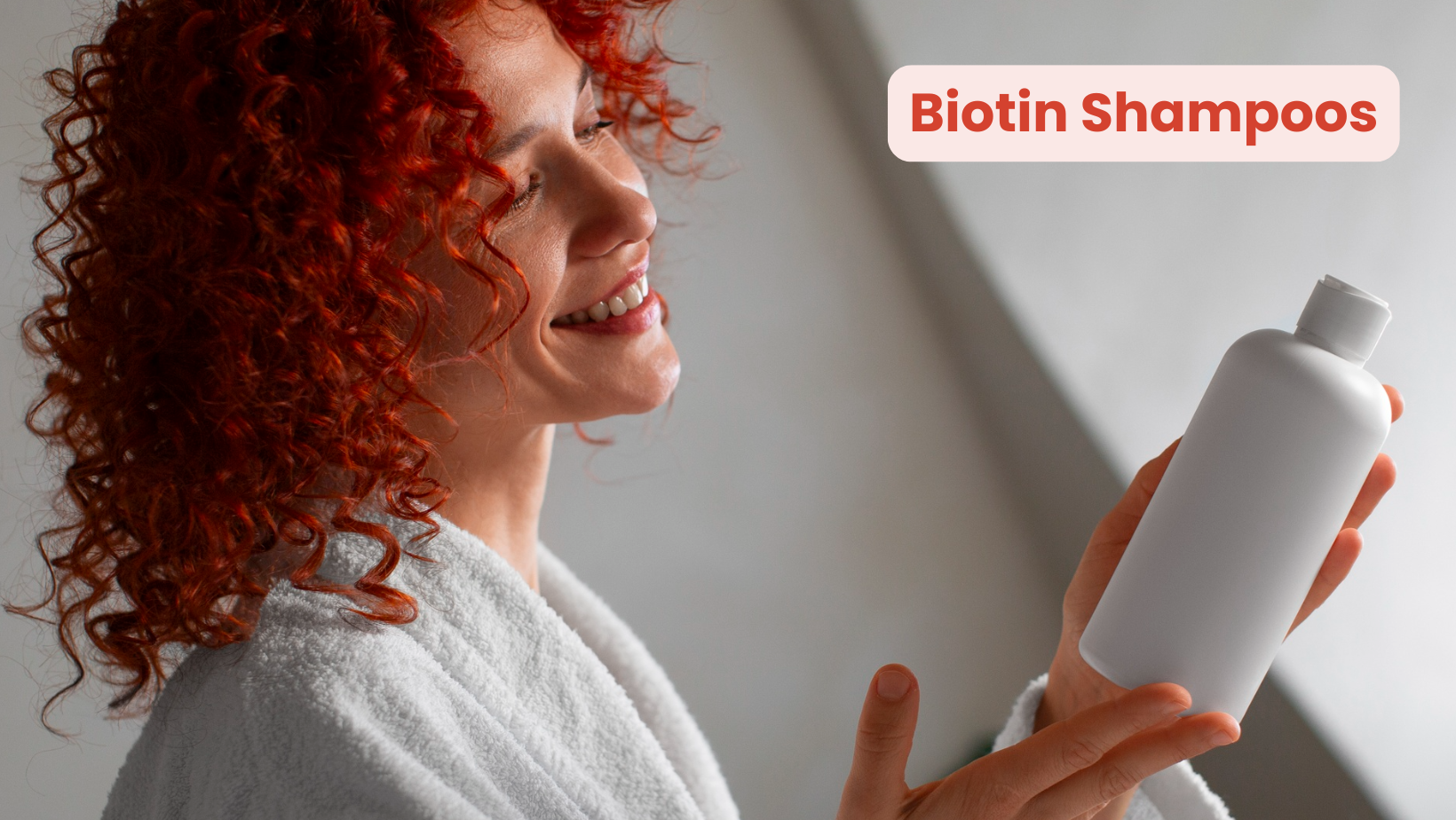
In the quest for fuller, healthier hair, many people have turned to biotin shampoos, drawn in by promises of thicker strands, reduced hair fall, and visible hair growth. With social media reviews and beauty influencers vouching for their benefits, biotin shampoos have become a go-to in many hair care routines. But the real question is: do they actually work? Or is it just another beauty industry trend?
Let’s dig into the facts behind biotin, how it works, and whether applying it topically through shampoo makes a meaningful difference.
What Is Biotin, and Why Is It in Your Shampoo?
Biotin, also known as vitamin B7 or vitamin H, is a water-soluble vitamin that plays a critical role in maintaining healthy skin, nails, and — most notably — hair. It helps convert nutrients into energy and is essential for the production of keratin, the protein that makes up hair strands.
A biotin deficiency, though rare, can lead to thinning hair, brittle nails, and dry skin. Because of this, biotin supplements have long been marketed as a way to enhance hair health from within. The jump from supplements to topical application in shampoos is a more recent evolution.
Biotin-infused shampoos promise to deliver nourishment directly to the scalp, strengthening the hair shaft, reducing breakage, and improving volume over time. But does applying biotin externally produce the same effects as taking it internally?
The Science Behind Biotin and Hair Growth
Internally, biotin has a known relationship with hair health, but only in cases of deficiency. If someone is biotin-deficient, supplementing can lead to improvement in hair strength and growth. However, for individuals with normal biotin levels, taking more biotin has not shown consistent evidence of significantly accelerating hair growth.
Now let’s talk about topical use — like in shampoos.
There is limited scientific evidence that applying biotin directly to the scalp or hair follicles penetrates deeply enough to cause meaningful biological changes. Hair is made up of dead cells, and while the scalp can absorb some nutrients, the effectiveness of topical biotin in stimulating new hair growth remains unproven.
However, there’s more to the story.
So, Do Biotin Shampoos Work? Yes — and No
The answer depends on what you expect a biotin shampoo to do.
✅ What Biotin Shampoos Can Do:
-
Improve Hair Texture and Strength
Biotin is often combined with other supportive ingredients like keratin, caffeine, saw palmetto, and natural oils. Together, these components can help improve hair elasticity, reduce breakage, and make the hair appear thicker and shinier. -
Support Scalp Health
Healthy hair starts with a healthy scalp. Biotin-enriched shampoos may support the scalp by promoting hydration and reducing inflammation, especially when paired with soothing natural ingredients like aloe vera or tea tree oil. -
Reduce Hair Breakage
Stronger hair is less likely to break. With consistent use, biotin shampoos may help reinforce the hair shaft, especially when used as part of a balanced hair care routine. -
Enhance Volume and Appearance
While biotin shampoo might not spark new hair follicles into action, it can make existing strands look fuller and feel smoother, giving the illusion of denser hair.
❌ What Biotin Shampoos Cannot Do:
-
Regrow Hair from Bald Patches
If you're experiencing pattern baldness or severe thinning due to genetics or medical conditions, biotin shampoo alone won't trigger new growth. Medical treatments or interventions may be needed. -
Work Overnight
Hair changes take time. Even if a biotin shampoo is effective for you, visible improvements will take several weeks to months. Consistency is key. -
Replace a Healthy Diet or Scalp Care
Hair health starts internally. No shampoo can compensate for nutritional deficiencies, chronic stress, poor scalp hygiene, or hormonal imbalances.
Tips for Using Biotin Shampoo Effectively
If you’ve decided to give biotin shampoo a try, here’s how to get the most out of it:
1. Use It Regularly
Incorporate it into your wash routine 2–3 times a week. Don’t expect instant miracles, but watch for gradual improvements in hair feel and manageability.
2. Massage It In
Spend 2–3 minutes massaging the shampoo into your scalp. This stimulates blood flow and may help with better nutrient delivery.
3. Pair With a Balanced Diet
Ensure you're eating foods rich in biotin naturally—like eggs, nuts, seeds, and whole grains—for internal support.
4. Avoid Harsh Ingredients
Choose biotin shampoos free from sulfates, parabens, and synthetic fragrances that can irritate the scalp or strip natural oils.
5. Be Patient and Track Progress
Take before-and-after photos every few weeks. It’s often hard to notice gradual improvement unless you have visual proof.
Who Should Consider Using a Biotin Shampoo?
Biotin shampoos may be especially helpful for:
-
People experiencing mild to moderate hair thinning
-
Those with breakage-prone or damaged hair
-
Individuals with dry scalps or dull hair
-
People looking for a natural ingredient-based solution
However, if you're dealing with significant hair loss, it’s best to consult a dermatologist or trichologist to rule out underlying conditions.
Conclusion: Worth the Hype or Just a Trend?
Biotin shampoos aren’t miracle workers, but they can be a valuable part of a holistic hair care routine. While the science on topical biotin is still evolving, many users report stronger, smoother, and healthier-looking hair with consistent use.
Think of biotin shampoo not as a standalone solution, but as one piece of a larger puzzle — including diet, scalp health, stress management, and the right hair care practices.
So, do biotin shampoos work? They can — especially when your goal is stronger, better-looking hair rather than dramatic regrowth.
